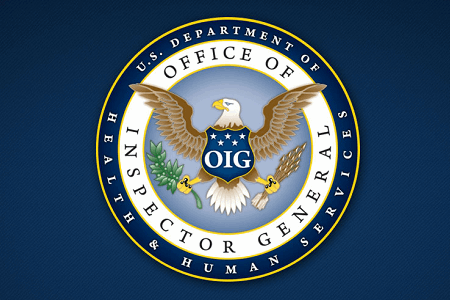
Health Law Alliance is pleased to announce that a “fraud” self-disclosure filed under Anthony Mahajan’s oversight was recently accepted into OIG’s self-disclosure program, effectively limiting the provider’s liability for alleged improper billing.
OIG’s Self-Disclosure Protocol
The U.S. Department of Health and Human Services, Office of the Inspector General (OIG), encourages providers to voluntarily report self-discovered evidence of potential fraud through the Health Care Fraud Self-Disclosure Protocol.
As we have written about in detail, a discrepant PBM audit may permit providers to learn about and resolve potential liabilities to government healthcare programs through the OIG self-disclosure process. Please read our article, “PBM Audit Strategy: Potential Windows of Opportunity,” available HERE, to learn more.
In short, self-disclosure often presents an excellent opportunity for providers to limit their exposure under administrative, civil, and maybe even criminal law, but the determination whether to make such a voluntary disclosure is extremely complex and must be carefully vetted by experienced healthcare defense attorneys.
The Provider’s OIG Disclosure
Per OIG’s announcement, following a self-disclosure submitted pursuant to the Self-Disclosure Protocol, Shore Orthopaedic University Associates, P.A., Charles N. Krome, D.O., and OrthoNJ, LLC, agreed to pay $333,645.83 for allegedly submitting claims to federal health care programs using code Q4206 for the use of Fluid Flow, an amniotic fluid growth factor injection product that treats orthopedic patients, to treat conditions which were not approved by Medicare.
In short, billing Medicare for products used to treat unapproved conditions exposes a provider to significant potential consequences. In this case, the decision was made to self-disclose after extensive consideration of many factors, including the calculation of damages, minimum settlement amounts, the conduct at issue, and the potential that the disclosure would not be accepted by OIG.
HLA Specializes in OIG Self-Disclosures
At Health Law Alliance, our experienced healthcare defense attorneys are specialists in all relevant self-disclosure protocols and procedures. Indeed, our attorneys possess the background and experience necessary to provide guidance and legal advice related to self-disclosures and assist with each step of the self-disclosure process. Contact us today for a free consultation.
MORE ARTICLES BY CATEGORY
The 2025 Healthcare Fraud Takedown Is a Warning Shot for Wound Care Providers
Wound care is now an enforcement priority. The 2025 fraud takedown targets skin substitute billing, graft utilization, and Medicare compliance.
Read More >>FDA and Novo’s Uncharted Waters to Exert Pressure on Hims & Hers and GLP-1 Compounders
Novo’s lawsuit against Hims & Hers, coupled with FDA’s referral to the DOJ, marks a direct escalation against 503A compounded semaglutide. If your pharmacy dispenses, compounds, or markets GLP-1 therapies, this is not a headline, it is a regulatory turning point.
Read More >>What Wells Pharma v. Zyla Life Sciences Means for Compounding Pharmacies and Outsourcing Facilities
A pending Supreme Court case could reshape how compounding pharmacies face litigation under state unfair competition laws tied to FDA approval standards.
Read More >>Health Law Alliance Welcomes Compounding Expert Pharmacist-Attorney Dr. Martha Rumore as Of Counsel
Health Law Alliance adds powerhouse Pharmacist/Attorney Dr. Martha Rumore to their team of boutique healthcare attorneys.
Read More >>




